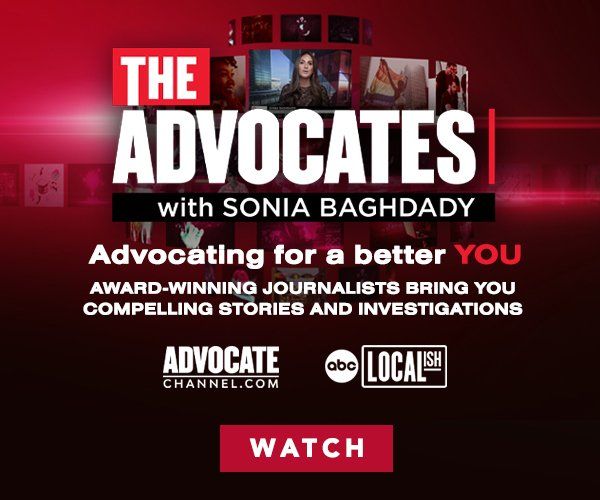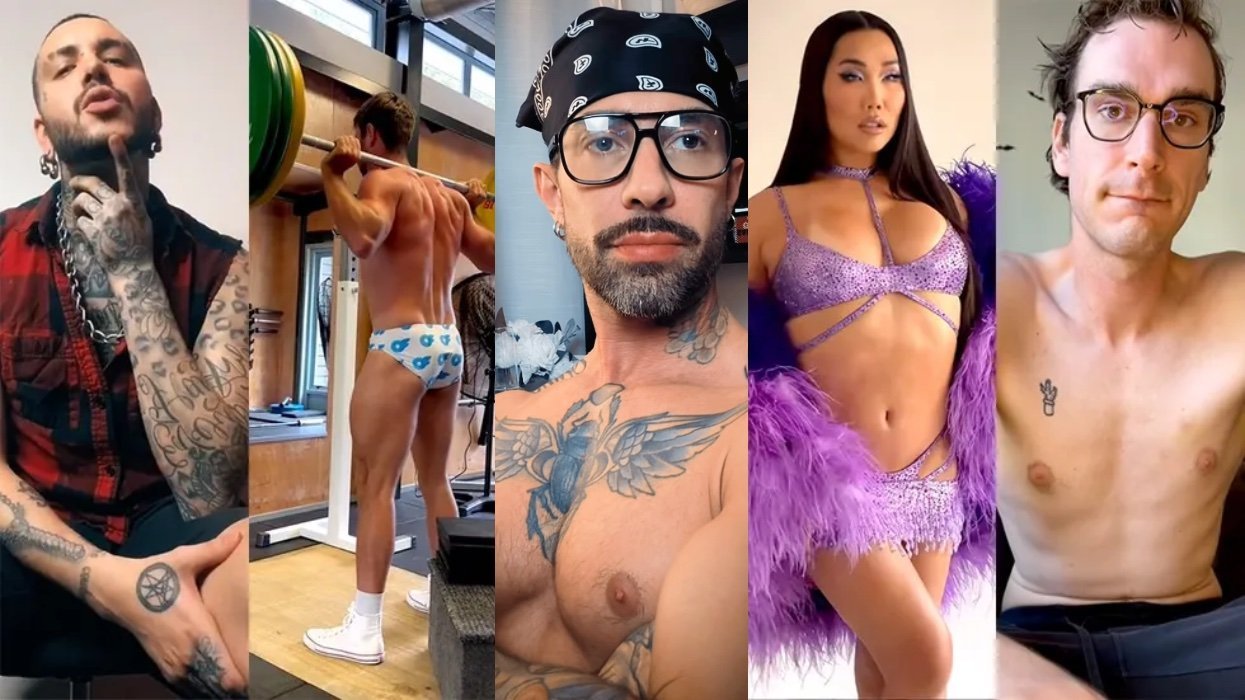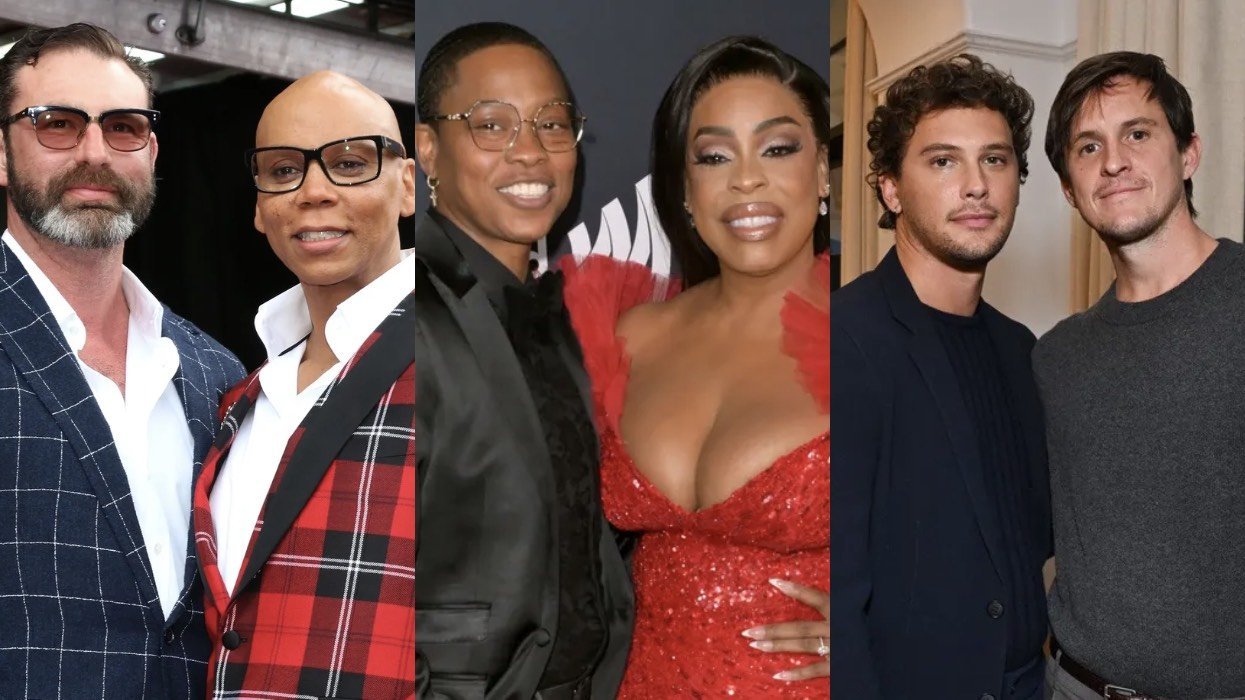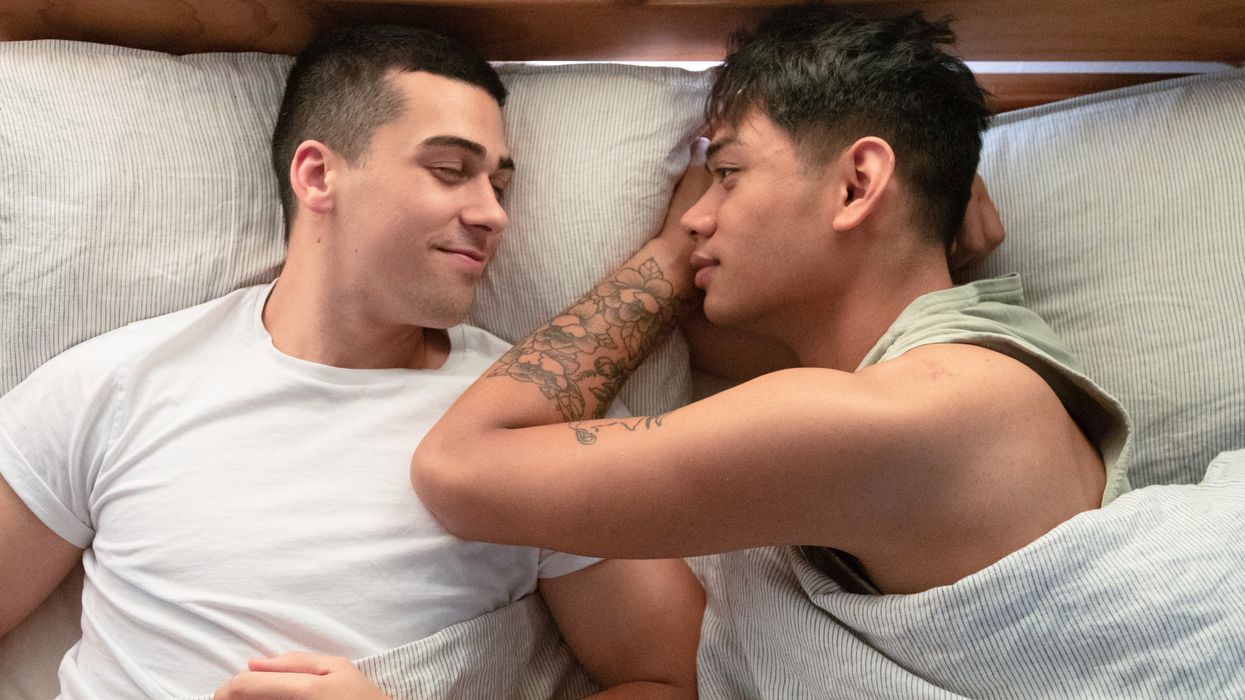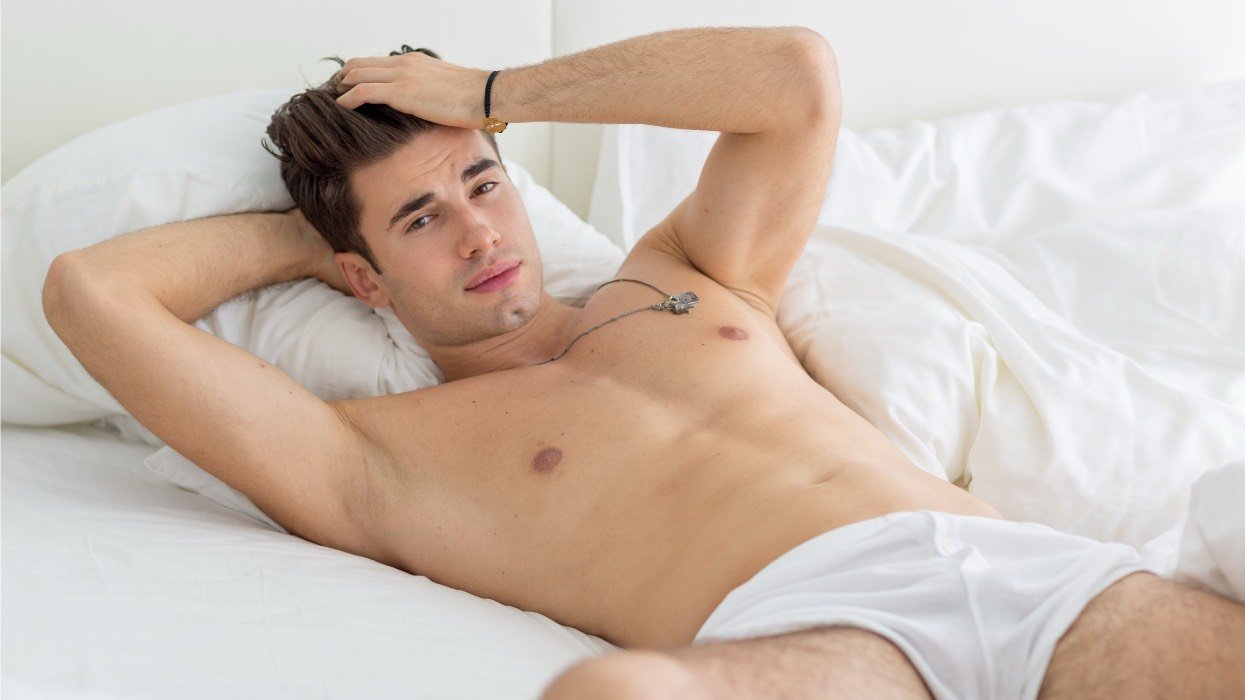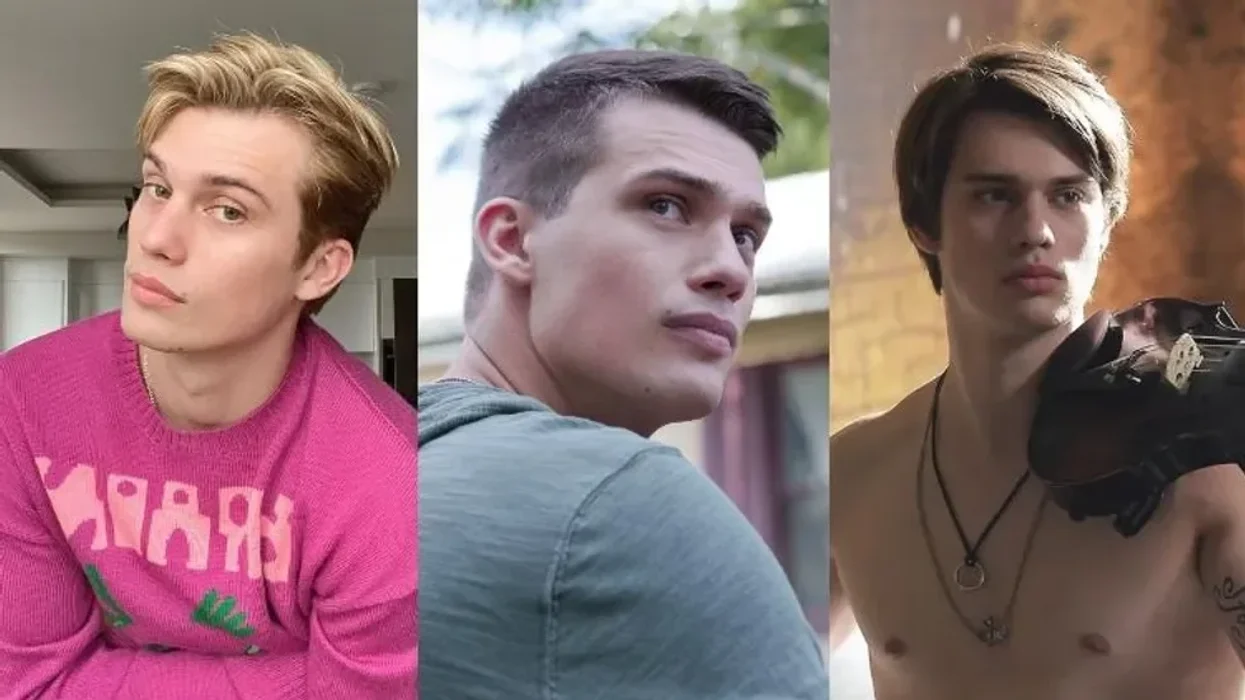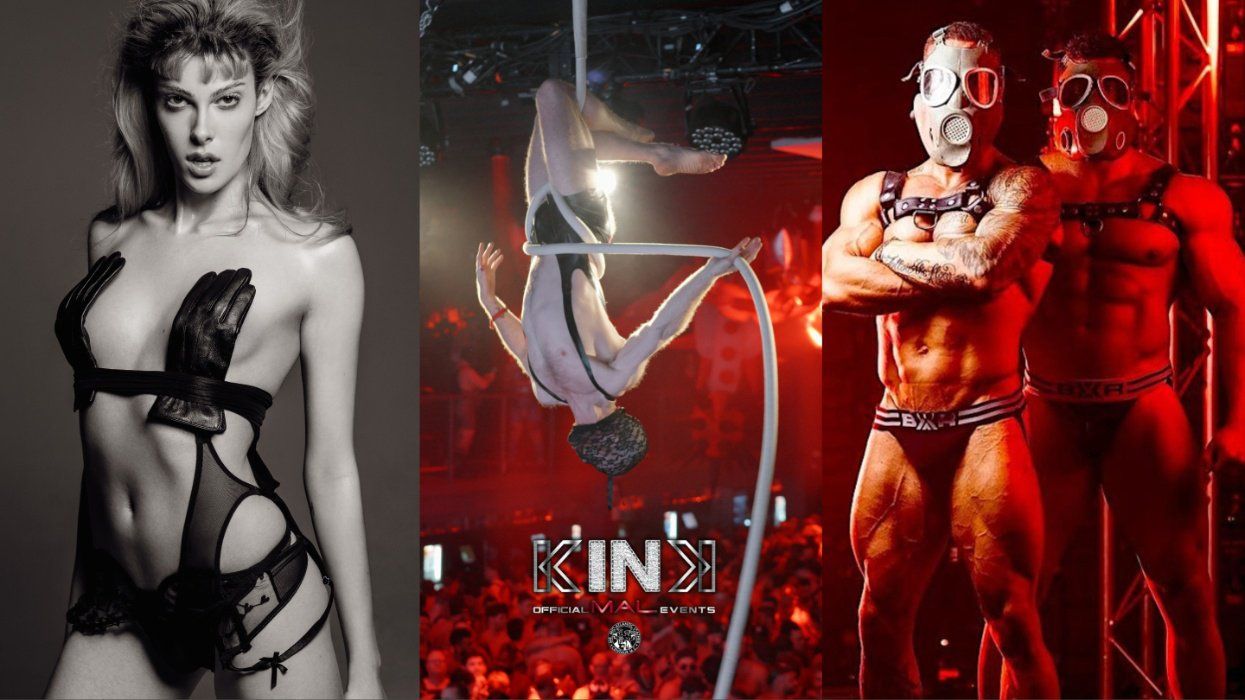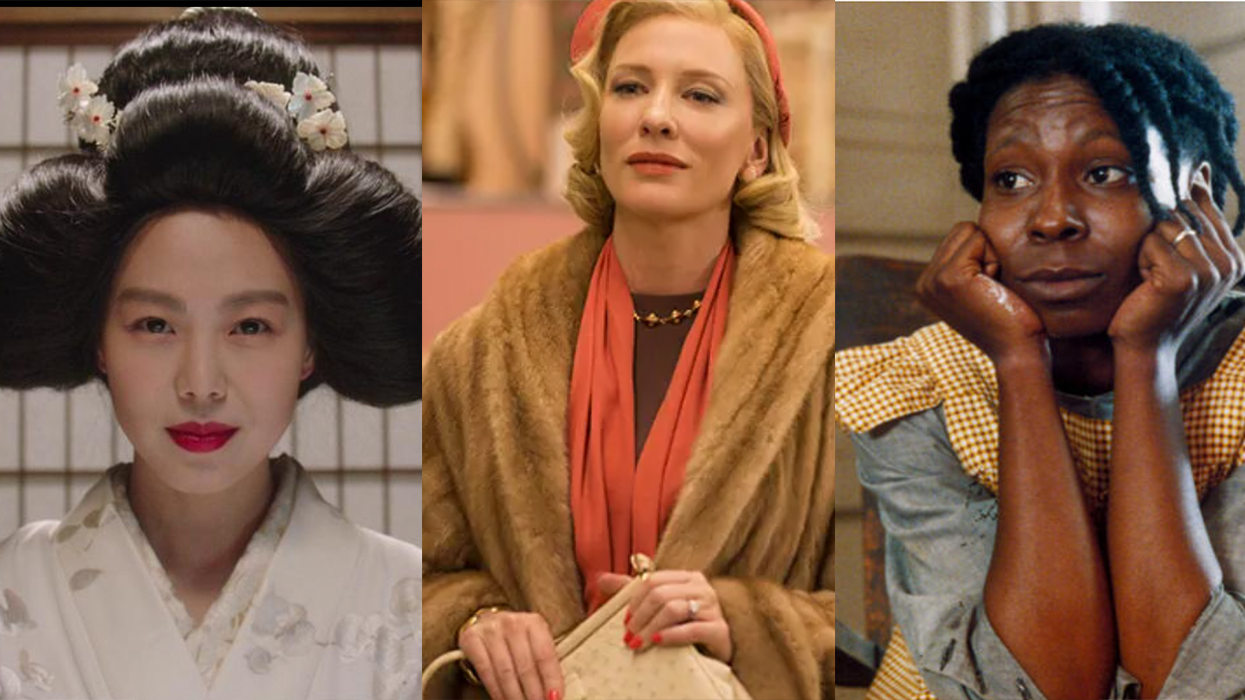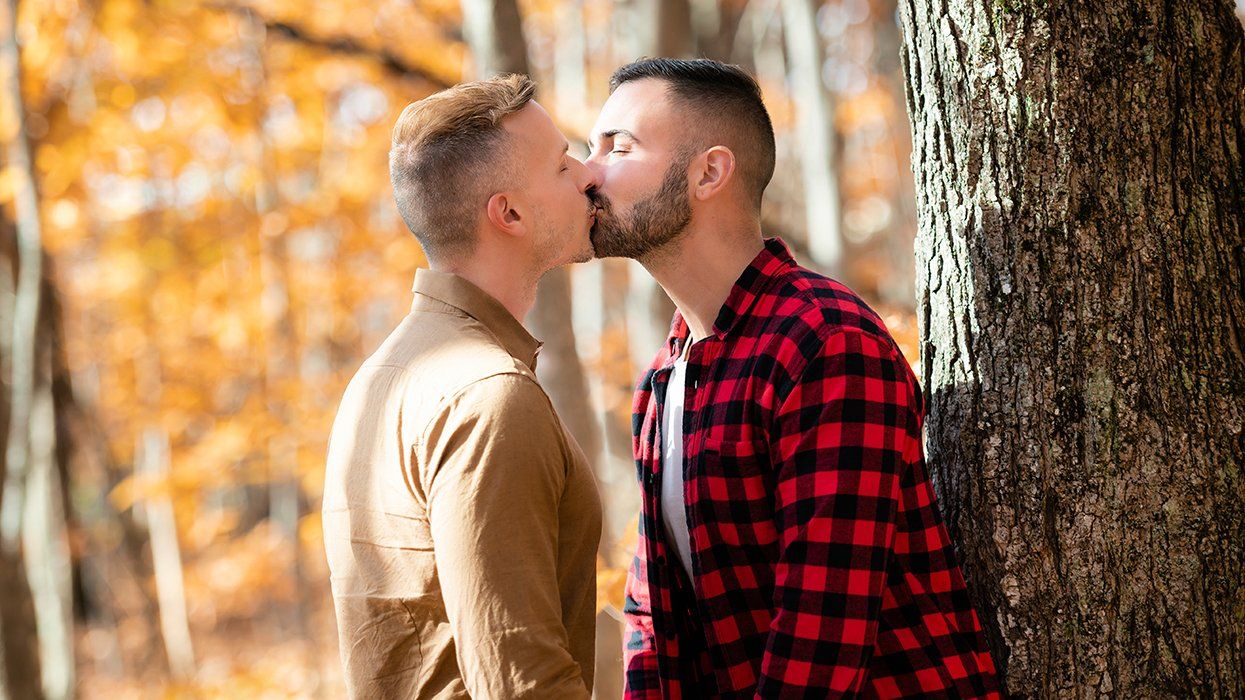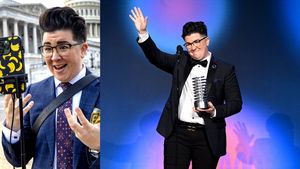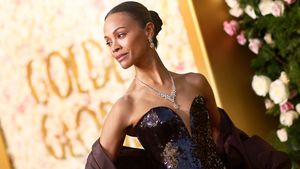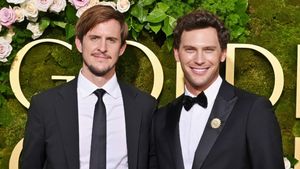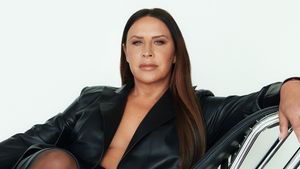HBO Max's newest YA series Genera+ion is filled to the brim with queer, young adult stories that focus on how silly, awkward, uncomfortable, and ridiculous coming of age can be. No one on the show embodies that mantra more than Delilah (played by Lukita Maxwell), who gives birth to a baby in a mall restroom in the series' opening scenes. But there's some power to glean from all that messiness.
PRIDE caught up with Maxwell to talk all things Delilah, what it was like to "give birth" as an actor, throuples, queer joy, and her character's implicit pansexuality.
PRIDE: Your arc in this season is so outrageous. Giving birth in a mall, I mean come on. What were your first thoughts when you read that script?
Maxwell: Through the audition process, I was not aware that I was going to be the girl in the bathroom. I also was not aware even after I was cast. I didn't find out until a week after I got cast. I was in New York. I got off the train and my phone started ringing and it said possibly Ben, Daniel and Zelda Barnes. And I had never gotten a call from them before and I was freaking the fuck out. I was like, "Holy shit. It's the Barnes family. They're calling my cell." Sorry, I just said cell like an old person.
Anyway, I answered the phone and I just said, "Hey." And they said, "Guess what? You're the girl in the bathroom." And I just died. I just could not believe that I had the opportunity of playing this incredibly comedic scene that was written into the pilot. That was so fucking funny.
What that morphed into, I had no idea. I don't think they had an idea. They kind of had several arcs lined out, but they hadn't set anything in stone yet. And as I was getting scripts throughout filming, every script was just like, "Holy shit, this is the next opener. This the next opener." It was incredible filming those scenes. As an actor, being able to be in a room and completely trust the actors and the crew around you to the point where you can completely let go and be in this incredibly vulnerable state, especially in when I'm having those really emotional scenes in the bathrooms.
I was working really closely with the intimacy coordinator, Rachel Fleischer, who was incredible in helping me get into and physicalize a lot of those scenes but also decompressing afterwards and how to step myself out of Delilah's mindset. When you're acting with your body so aggressively, your body doesn't know any better and your body starts to freak out. So I had to kind of recoup after that. But yeah, it was great.
Delilah is this radical activist character heightened and played to comedic effect. We meet her parents in the second part of the season and they seem so open. Why do you think she didn't want to tell them about her pregnancy?
For Delilah, she's incredibly worried of being put in a box and having a label stuck on you, which is an interesting concept that is kind of explored through the second block. This idea of putting a label on something and finitely defining something. Or rather the process before that, trying to keep it a secret and seeing how you can maintain relationships and seeing how relationships change if they have more information about you. She's really, really nervous that her parents will see her differently and will always see her as this teen mom.
Delilah has these huge goals and plans and she just does not want to be put in any sort of box right now. And also she's young and she's really wrapped up about this cute boy that she likes. She wants him to think she's cool and is also wanting her two friends, Naomi and Ariana, to think that she's cool enough to keep hanging out with them. And I think that in block two, Delilah is really just exploring how to find normalcy in adolescents and what that means to her and trying to just be a "regular" teen.
How do you think having the baby changed Delilah's mindset moving forward? I think about that scene where she's looking in the mirror at her body and there's... something on her face.
It was a process trying to figure out kind of where she would go. From the get-go, the Barnes were all very adamant that it was never a place of guilt or regret or anything like that. The process she went through was this incredibly beautiful life-changing process that brought her and this chosen family together in this crazy way. And I found that when we were shooting in block one, she was so sure of who she was and what she wanted from the world and how she wanted to change it and she pushed that on a lot of people.
In block two, she's a little bit more lost. For somebody to be in so much control of everything in their life and have this crazy incident happen, I think Delilah's learning to let go more and just be like, "I cannot control everything. I have to figure out how to step back and just let myself live life." But then she has this tendency to control things still. In the second block, I was trying to find this balance of her being lost, but also having some sort of direction of where she wants to go. The direction being seeing this cute boy and also staying really close friends with her sisters.
You mentioned chosen family and how this event bonded these characters together. I think a lot about how this show remains playful in its heavier and traumatic storylines. Watching anyone go through hard experiences and coming out of it or looking at it with humor, can feel empowering for viewers, like it doesn't have to derail or tear apart your life. I wondered if you could talk about that, the queer joy that shines through the series.
That was the whole sentiment that Zelda wanted to portray. That the Gen Z queer experience is not defined by their queerness or their labels that they have put on their gender identity or sexuality. How it's just a little piece in this bigger picture and all of these moments that come from queer surroundings, queer friends, your queer identity, are those moments of joy. Queer love is so fucking beautiful.
You felt that on set. A huge part of the cast and the crew was queer and just even just joking around and being safe in a queer space, offscreen helped, I think, so much. I've never been on a set that has been that diverse and that inclusive and open to any sort of conversation about anything. Zelda really captured this spirit of Gen Z queer youth and how excited they are to explore the world around them and to, well in Delilah's case, change it.
Spoilers from today's episodes ahead...
In episode 12, we see Delilah and Naomi discuss being in a throuple with their mutual crush, which is such a funny story. But it's quite rare. You might see something like this with very established queer characters, but two presumably straight girls being like, "Let's try this out." That was so cool.
It was the biggest shock when I got that script. There were so many crazy shockers in the script. We had this recurring joke [offset] about there being throuples, and we were making throuples. When the script came out, we were like, "Oh my God. The Barnes are listening and recording our conversations all the time." Because they were writing in some of these crazy obscure, random things that we had been talking about.
The throuple stuff is very fun in the way that they have no idea what the fuck they're doing. And they don't know what a polyamorous relationship looks like, but it doesn't matter to them. There's no stigma around it. There's no whatever. It doesn't matter to them. We're just going to have a good time. We're going to have fun. We're going to see if he wants to do it because why the fuck not.
It speaks to how the show also approaches queer identities. Because it is what it is. There's no explanation that needs to be given. So yeah, it's very, very fun. Also, Naomi is definitely straight as a stick. Delilah, I don't think I've said this, but I've spoken to the Barnz about it and Delilah is definitely pansexual. I don't know if that's going to be explored in the future, but I mean, Delilah is definitely pan.
Read our interview with Genera+ion's creators, Zelda, Ben, and Dan Barnez, here. New episodes premiere Thursdays on HBO Max.










































